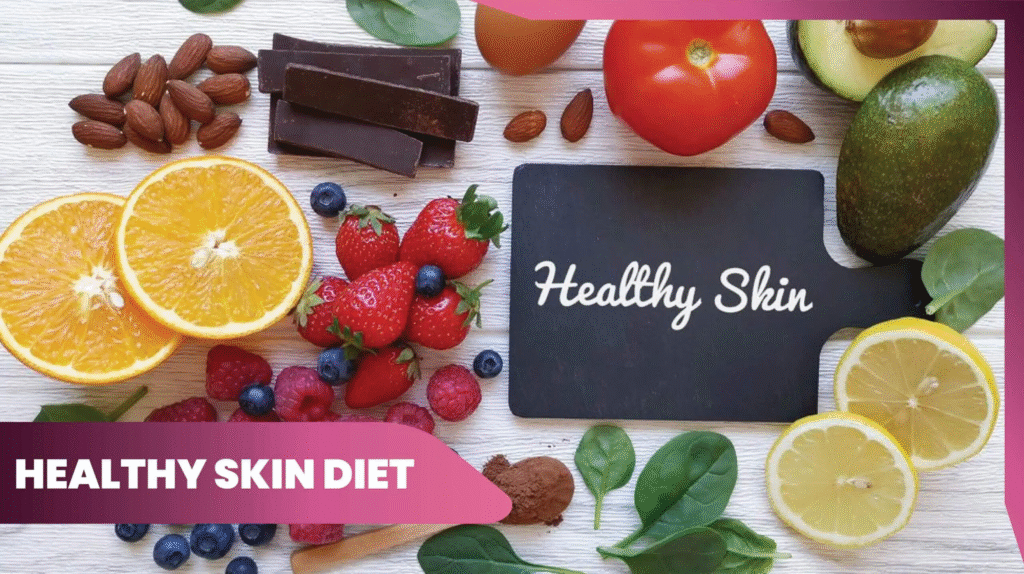Beautiful, glowing skin isn’t just a matter of luck or genetics—it’s the result of consistent care, smart habits, and understanding what your skin truly needs. In today’s fast-paced world, pollution, stress, and unhealthy lifestyles can take a toll on your complexion. But with the right skincare routine and mindful practices, you can achieve lasting radiance that goes beyond surface-level beauty. Healthy skin begins with simple steps, and this guide will walk you through everything you need to know to nurture it naturally and effectively.
Understanding Your Skin
Before diving into products or routines, it’s important to understand your skin type. Every person’s skin is unique, and recognizing its specific needs helps you choose the right skincare approach.
- Normal skin feels balanced, not too oily or too dry.
- Oily skin produces excess sebum and may be prone to acne or shine.
- Dry skin often feels tight, flaky, or rough.
- Combination skin has both oily and dry zones, usually with an oily T-zone (forehead, nose, and chin).
- Sensitive skin may react easily to products or environmental changes.
Identifying your skin type is the first step toward building a routine that delivers results without irritation.
The Power of a Consistent Skincare Routine

Skincare is not about expensive products—it’s about consistency. Following a daily routine helps your skin stay clean, hydrated, and protected from environmental stress. Here’s a simple yet effective regimen that works for most skin types.
1. Cleanse Gently
Start and end your day with a mild cleanser that removes dirt, oil, and impurities without stripping your skin’s natural moisture. Over-cleansing can disrupt the protective barrier, leading to dryness or breakouts. Opt for sulfate-free, pH-balanced cleansers suited for your skin type.
2. Exfoliate Regularly
Exfoliation helps remove dead skin cells, unclog pores, and promote cell renewal. Use a gentle exfoliator two to three times a week. Physical scrubs with harsh grains can damage skin, so choose chemical exfoliants like AHA or BHA for smoother and brighter skin.
3. Hydrate Deeply
Moisturizing is key to achieving glowing skin. Whether your skin is dry, oily, or combination, hydration helps balance oil production and prevent dullness. Use lightweight, non-comedogenic moisturizers for oily skin and richer creams for dry skin. Ingredients like hyaluronic acid and ceramides work wonders in keeping your skin plump and soft.
4. Protect with Sunscreen
Sunscreen is your best defense against premature aging and pigmentation. Apply a broad-spectrum SPF of at least 30 every morning, even on cloudy days or when staying indoors. UV rays can penetrate windows and screens, so consistent sun protection is essential for lasting radiance.
5. Nighttime Care
Your skin repairs itself while you sleep. Before bedtime, cleanse your face, apply a nourishing serum or night cream, and ensure your pillowcases are clean. Overnight hydration and repair products with ingredients like retinol, peptides, or niacinamide can help rejuvenate your complexion while you rest.
Nutrition and Lifestyle for Healthy Skin

True radiance starts from within. What you eat, how much you sleep, and your daily habits have a direct impact on your skin’s health. Here are a few essential lifestyle tips to complement your skincare routine.
Eat a Balanced Diet
Foods rich in antioxidants, vitamins, and healthy fats promote a natural glow. Include leafy greens, berries, nuts, avocados, and omega-3 fatty acids in your meals. Hydrate well—drink at least 8 glasses of water daily to flush out toxins and keep your skin supple.
Sleep Well
Lack of sleep causes dull skin, dark circles, and early aging signs. Aim for 7–8 hours of quality sleep every night. During deep sleep, your body boosts collagen production and repairs damaged cells.
Manage Stress
Chronic stress can trigger acne, redness, and other skin concerns. Incorporate stress-relief activities like meditation, yoga, or regular exercise. A calm mind contributes to a clear, glowing complexion.
Avoid Smoking and Limit Alcohol
Smoking reduces blood flow to the skin, causing it to lose oxygen and nutrients. Alcohol dehydrates the body and leads to puffiness and dryness. Reducing or avoiding these habits significantly improves skin texture and radiance.
Natural Remedies for Lasting Glow
Nature offers countless ingredients that nourish and protect your skin. You can easily include natural remedies in your weekly care.
- Honey and Lemon: Brightens the complexion and provides antibacterial protection.
- Aloe Vera Gel: Soothes irritation and hydrates deeply.
- Green Tea: Reduces inflammation and fights free radicals.
- Cucumber or Rose Water: Refreshes and tones the skin naturally.
Always patch-test any natural ingredient before applying it to your face to avoid reactions.
Avoid Overloading Your Skin
More products don’t always mean better results. Layering too many serums and creams can confuse your skin and lead to breakouts. Focus on quality, not quantity. Stick to essentials: a gentle cleanser, hydrating moisturizer, and SPF. You can introduce serums or treatments gradually once your skin barrier is strong and healthy.
Be Patient and Consistent
Healthy skin doesn’t transform overnight. It takes time, discipline, and self-care. Consistency is the secret to lasting results—stay committed to your skincare routine, eat nourishing foods, and protect your skin from the sun. With patience and the right habits, you’ll notice your skin becoming clearer, smoother, and more radiant each day.
Also Read :The Ultimate Skincare Routine: Steps For Glowing, Healthy Skin
Conclusion
Your skin reflects your lifestyle and care. Glowing, healthy skin isn’t about perfection—it’s about balance, nourishment, and daily commitment. Start with small steps: cleanse gently, moisturize regularly, protect from the sun, and feed your body with wholesome foods. When you prioritize self-care and give your skin the attention it deserves, lasting radiance naturally follows.
Frequently Asked Questions (FAQs)
What is the most important step in a skincare routine?
The most important step is applying sunscreen every day. Sun protection helps prevent premature aging, dark spots, and other skin damage caused by harmful UV rays. Even if you’re indoors or it’s cloudy outside, sunscreen is essential for maintaining healthy, radiant skin.
How often should I exfoliate my skin?
For most skin types, exfoliating two to three times a week is ideal. Over-exfoliating can cause irritation and dryness, so it’s important to give your skin time to recover between exfoliation sessions. Always use a gentle scrub or a mild chemical exfoliant suitable for your skin type.
Can oily skin skip moisturizer?
No. Even oily skin needs hydration. Skipping moisturizer can cause your skin to produce even more oil to compensate for dryness. Choose a lightweight, oil-free moisturizer that hydrates without clogging pores.
How can I make my skin glow naturally?
To achieve natural glow, follow a consistent skincare routine, eat healthy foods rich in vitamins and antioxidants, stay hydrated, and get enough sleep. Using natural ingredients like aloe vera, honey, or rose water can also help brighten your skin naturally.

